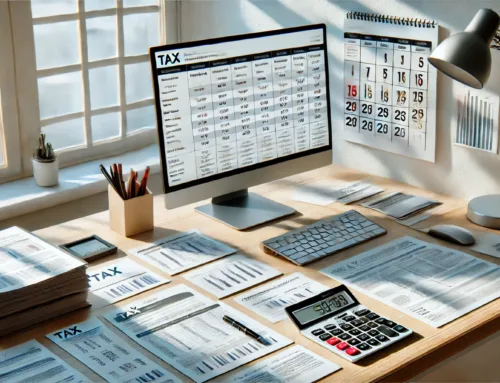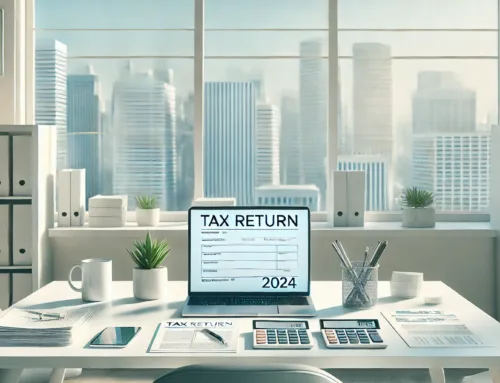Tax obligations can be a daunting task for sole traders, It often leads to missed opportunities for savings. Many small business owners are unaware of tax incentives that could significantly benefit their financial standing. Temporary Full Expensing, introduced between 2020 and 30 June 2023, offers a solution by allowing the full deduction of the cost of eligible depreciating assets. This measure aims to enhance cash flow and encourage investment in new and existing assets.
Tax obligations can be a daunting task for sole traders, It often leads to missed opportunities for savings. Many small business owners are unaware of tax incentives that could significantly benefit their financial standing. Temporary Full Expensing, introduced between 2020 and 30 June 2023, offers a solution by allowing the full deduction of the cost of eligible depreciating assets. This measure aims to enhance cash flow and encourage investment in new and existing assets.
Our comprehensive guide delves into how sole traders can leverage Temporary Full Expensing, covering eligibility, benefits, and the process of claiming these deductions, ensuring you’re equipped to make informed decisions for your business.
The Importance for Sole Traders
Australian sole traders by allowing an immediate deduction for the full cost of eligible depreciating assets. This measure targets small businesses with an aggregated turnover of less than $50 million, promoting significant tax savings. Key characteristics include:
- Eligibility for new and existing assets first used or installed ready for use within the specified period.
- Simplified depreciation rules apply, enhancing business investment and cash flow.
- Assets costing less can be immediately written off, benefiting sole traders on an asset-by-asset basis.
This scheme underscores the government’s support for small business entities, encouraging investment and aiding in the management of taxable income.
Eligibility Criteria for Temporary Full Expensing
Eligible Businesses and Sole Traders:
- Australian businesses with an aggregated turnover of less than $50 million are eligible.
- Sole traders can benefit if they meet the turnover threshold and use assets for a taxable purpose.
- Small business entities can immediately deduct the full cost of eligible assets.
- The scheme supports business investment by allowing an immediate tax deduction.
Eligible Depreciating Assets:
- Assets must be first used or installed ready for use between 6 October 2020 and 30 June 2023.
- Eligible assets include new and existing assets costing less, with no upper limit on the cost.
- Second-hand assets qualify if the business’s turnover is under $50 million.
- Assets must be used for a taxable purpose to qualify for the deduction.
Key Dates: Importance of 30 June 2023:
- The scheme applies to assets first held, first used, or installed ready for use by 30 June 2023.
- This deadline encourages businesses to invest in eligible depreciating assets before the end of the income year.
- Assets acquired between 6 October 2020 and 30 June 2023 are covered, promoting immediate business investment.
- Understanding these dates is crucial for maximizing tax benefits and planning tax returns effectively.
Benefits of Temporary Full Expensing for Sole Traders
1. Immediate Tax Savings:
Temporary full expensing allows sole traders to deduct the full cost of eligible depreciating assets immediately. This measure, effective from 6 October 2020 until 30 June 2023, enables a full write-off of the asset’s cost, leading to significant tax savings. By claiming a deduction for the full cost, sole traders can reduce their taxable income substantially in the income year the asset was first used or installed ready for use.
2. Cash Flow Improvement:
The ability to deduct the full cost of depreciating assets under temporary full expensing improves cash flow for sole traders. This immediate tax relief frees up cash that would otherwise be tied up in tax payments, allowing it to be reinvested into the business or used for other purposes. This is especially beneficial for assets acquired between 2020 and 30 June 2023, enhancing financial flexibility during this period.
3. Investment Incentive:
Temporary full expensing acts as an incentive for sole traders to invest in new assets or improve existing ones. By offering a full deduction on the cost of eligible assets, including primary production depreciating assets and certain improvements, it encourages business owners to upgrade their operations. This investment can lead to increased productivity and competitiveness, with the scheme covering a broad range of assets.
4. Simplified Asset Acquisition:
The scheme simplifies the process of asset acquisition for sole traders by using simplified depreciation rules. Assets of any value acquired between 2020 and 30 June 2023 are eligible, including new and existing depreciating assets. This simplification helps sole traders navigate tax depreciation and capital assets management more efficiently, without the need for complex calculations.
5. Flexibility in Asset Management:
Sole traders have the flexibility to opt out of temporary full expensing for certain assets, providing control over tax planning and depreciation deductions. This flexibility allows for strategic financial decisions, tailoring asset management to suit individual business needs. Whether it’s opting in to maximize immediate benefits or opting out to spread deductions over time, the choice provides valuable adaptability.
6. Broad Eligibility:
The temporary full expensing measure offers broad eligibility, covering a wide range of assets and improvements made during the eligible period. This inclusivity ensures that many sole traders can benefit, regardless of the specific nature of their business. From capital assets to improvements on existing assets, the scheme is designed to support a diverse array of business investments, fostering growth across various sectors.
How to Use Temporary Full Expensing
Temporary full expensing allows businesses to deduct the full cost of eligible depreciating assets. Introduced on 6 October 2020, AEDT, and available until 30 June 2023, this measure enables businesses to write off the full cost of new assets and improvements to existing ones.
To benefit, assets must be first used or installed ready for use between these dates. This scheme covers a broad range of assets, including primary production and capital assets, without a cost limit, enhancing tax depreciation benefits and supporting cash flow.
Simplified Depreciation Rules Explained
- Eligibility: Small businesses can immediately write off the cost of depreciating assets.
- Benefits: Simplifies tax affairs by allowing a full deduction for the cost of eligible assets.
- Key Characteristics: Applies to both new and existing eligible depreciating assets acquired from 12 March 2020 until 30 June 2021.
- Principles: Businesses can pool assets and claim a 15% deduction in the first year, regardless of when the asset was purchased during the year.
Opting Out of Temporary Full Expensing
Businesses may choose to opt out of temporary full expensing for an income year on an asset-by-asset basis. This decision could be strategic, for example, if a business anticipates higher taxable income in future years and would benefit more from depreciation deductions over time.
Opting out requires notifying the Australian Taxation Office (ATO) and can provide flexibility in managing tax liabilities, especially for assets that would be eligible except under specific conditions, such as tax consolidation rules or assets used primarily for corporate tax entities.
Maximize Your TFE Benefits with TaxLeopard
The complexities of Temporary Full Expensing can be a daunting task for sole traders. That’s where TaxLeopard shines, offering a comprehensive suite of tools designed to simplify your financial management. With features like Bookkeeping, Invoicing, and Logbook, TaxLeopard ensures that all your eligible expenses are accurately tracked and reported.
Its BAS Lodgement and Tax Return functionalities streamline the process of claiming full deductions for eligible depreciating assets, ensuring you don’t miss out on valuable tax savings. Plus, with easy ABN/GST Registration and access to professional Accountants, TaxLeopard is the ultimate ally for sole traders looking to maximize their benefits under Temporary Full Expensing.
Conclusion
Temporary Full Expensing represents a pivotal opportunity for sole traders to optimize their tax positions and invest in the growth of their businesses. By understanding and applying the principles outlined in this guide, you can navigate the complexities of tax depreciation, claim full deductions for eligible assets, and potentially transform your business’s financial health. Have you considered how Temporary Full Expensing could impact your next business investment?
FAQs
1. Does Temporary Full Expensing apply to assets of any value?
Yes, there is no upper limit on the cost of assets for which you can claim the deduction.
2. How does Temporary Full Expensing affect tax depreciation?
It allows for an immediate full deduction, impacting the business’s taxable income and potentially reducing tax payable.
3. What is the deadline for claiming Temporary Full Expensing?
Assets must be first used or installed and ready for use by 30 June 2023 to qualify.
4. Can improvements to existing assets be claimed?
Yes, businesses can fully expense the cost of improvements made during the eligible period.
5. Are there specific rules for small businesses using Simplified Depreciation?
Small businesses can choose to apply simplified depreciation rules, pooling assets and claiming immediate deductions.
[/fusion_text][/fusion_builder_column][/fusion_builder_row][/fusion_builder_container]





